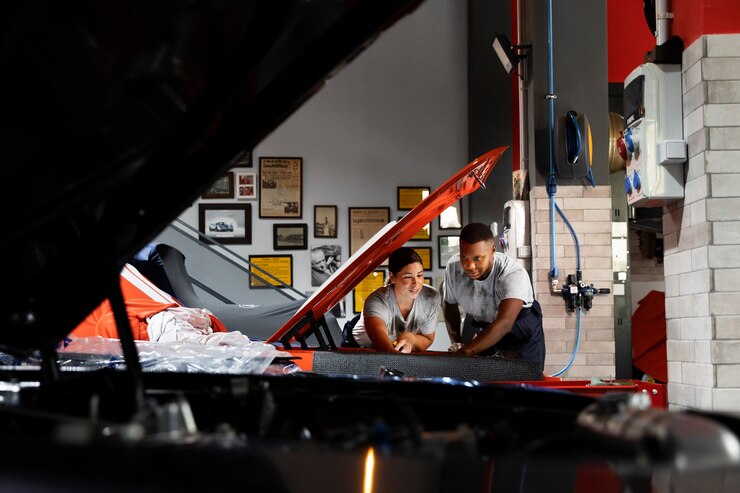Purchasing a used car is a cost-effective way to have dependable transportation without having to pay the outrageous prices of a new car. However, you must ensure that you invest wisely, which necessitates meticulous budgetary preparation. In order to ensure that you receive the most value for your money when purchasing a used car in Australia, this article offers crucial budgeting tips.
1. Determine Your Total Budget
Prior to shopping for a used car, you must decide on your entire budget. This includes the purchase price as well as any associated costs for maintenance, insurance, taxes, and registration.
Tips:
- Decide on a clear limit: Decide how much is the most you are willing to pay.
- Include Unexpected Costs: Set up money for future repairs, license fees, and insurance payments.
- Emergency Fund: Set aside money for unplanned maintenance or repairs.
2. Research Market Prices
Understanding the market value of different makes and models helps you set a realistic budget and spot good deals. Websites like SAT Japan, Carsales, and Gumtree can provide price comparisons for used cars in Australia.
Tips:
- Check Multiple Sources: Compare prices from various online platforms and dealerships.
- Look for Trends: Identify which models depreciate slower and maintain better value.
- Analyze Age and Mileage: Cars between three and five years old with reasonable mileage typically give the best value in terms of affordability and dependability.
3. Consider Financing Options
You may want financing if you don’t have enough money saved up to purchase an automobile altogether. Investigate various financing choices to identify the most economical conditions.
Tips:
- Examine and contrast loan offers. Examine the conditions, interest rates, and costs offered by internet lenders, credit unions, and banks.
- Prior Approval: Having your loan application pre-approved can help you negotiate better terms and give you a better understanding of your spending.
- Avert Long-Term Debt: To reduce interest expenses, try to get loan terms that are no longer than five years.
4. Choose the Right Car
Achieving the ideal car requires striking a balance between your wants and your budget. Take into account elements such as insurance rates, maintenance expenses, and fuel efficiency.
Tips:
- Put Needs Before Wants: Pay more attention to necessities than luxuries.
- Verify Dependability: Examine the dependability of various models and steer clear of those with a track record of mechanical problems.
- Fuel Efficiency: To save money over time, choose vehicles with high fuel efficiency.
5. Negotiate the Price
Negotiation is a critical part of buying used cars. Be prepared to negotiate the price with both private sellers and dealerships.
Tips:
- Research First: Use your market research to justify your offer.
- Highlight Issues: Point out any problems or necessary repairs to negotiate a lower price.
- Be Ready to Walk Away: Don’t be afraid to walk away if the seller isn’t willing to meet your price.
6. Inspect the Car
A thorough inspection can save you from future headaches and expenses. Consider hiring a professional mechanic to inspect the car before purchase.
Tips:
- Professional Inspection: Hire an independent mechanic to check the car.
- Test Drive: Always take the car for a test drive to assess its condition.
- Check History: Use services like CarHistory or REVS to check for any outstanding debts or past accidents.
7. Plan for Ongoing Costs
The usual expenses of owning a car include maintenance, gasoline, and insurance. Make sure to account for these in your budget so that you can finally afford the automobile.
Tips:
- Regular Maintenance: Set aside money for regular maintenance to maintain your automobile in good working order.
- Insurance Costs: Get insurance quotes for the models you are considering in order to calculate the price.
- Fuel Costs: Determine your monthly fuel expenses by factoring in the fuel efficiency of your vehicle as well as your driving habits.
8. Timing Your Purchase
The timing of your purchase of a used automobile might impact the cost. Buying at the right time of year might help you save money.
Tips:
- End of Financial Year: In order to get rid of inventory, many dealerships can provide large discounts.
- Off-Peak Times: At the end of the month or year, for example, prices are sometimes lower.
- Big Holidays: Keep an eye out for sales occasions around big holidays, since dealerships might be running deals.
Conclusion
If handled cautiously and thoroughly, purchasing a secondhand automobile in Australia can be a wise financial move. You may find a trustworthy used car that fits your needs without going over budget by setting a budget, looking up market pricing, thinking through financing possibilities, selecting the proper vehicle, negotiating skillfully, inspecting the vehicle, making ongoing cost plans, and scheduling your purchase at the right time. You’ll be ready to negotiate the used automobile market and receive a deal if you follow these budgeting suggestions.




